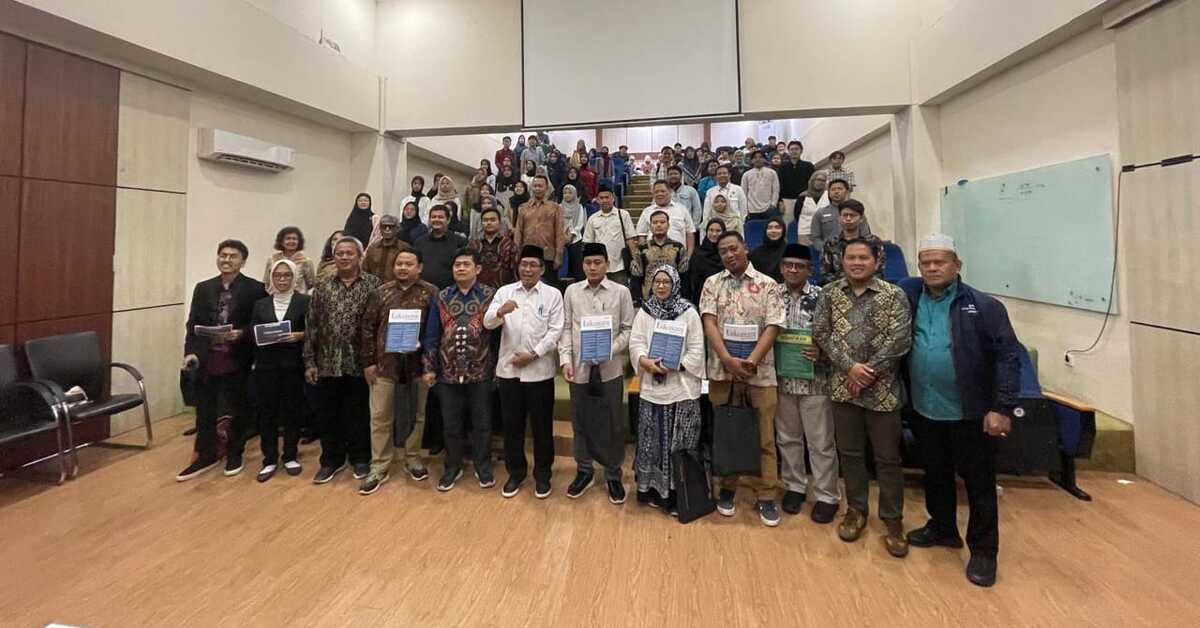Securing Grant Management: Forum Zakat and UIN Jakarta Discuss Judicial Review of Zakat Law
Jakarta, UIN Online News — The Forum Zakat (FOZ), in collaboration with the Faculty of Economics and Business (FEB) of Syarif Hidayatullah State Islamic University Jakarta, held a seminar on the "Judicial Review of Law Number 23 of 2011 on Zakat Management" on Tuesday (7/10/2025). The event, hosted at the FEB Theater Room, brought together experts from the government, parliament, academia, and philanthropic and zakat organizations.
Keynote speakers included Director of Zakat and Waqf Development at the Ministry of Religious Affairs, Prof. Dr. H. Waryono Abdul Ghafur; Member of Commission VIII of the Indonesian House of Representatives (DPR RI), Dr. K.H. Maman Imanul Haq; and Chair of the FOZ, Wildan.
The discussion panel featured Prof. Dr. Amelia Fauzia, an Islamic philanthropy scholar and Chair of the Social Trust Fund UIN Jakarta; Ibnu Tsani, Chair of Lazismu; Barman Wahidatan from Indonesia Zakat Watch; and Ahmad Sobirin from the Indonesian Ombudsman.
In his remarks, Dr. K.H. Maman Imanul Haq emphasized the strategic importance of such academic forums in elevating the discourse on zakat governance by showing the potential use of emerging technologies such as blockchain to ensure transparency and prevent misuse of funds.
“If zakat is managed with a system as stringent as blockchain, misuse will become nearly impossible,” he stated.
He further stressed the ethical dimensions of zakat management, citing a case in Tasikmalaya where aid distribution was carried out using luxury vehicles—an obvious contrast to the nature of zakat.
“There is no point in showcasing wealth since the essence of zakat lies in modesty and justice,” he asserted.
Meanwhile, Prof. Dr. Amelia Fauzia, a professor at UIN Jakarta and a leading researcher in Islamic philanthropy, clarified that the judicial review was not a reflection of Indonesia’s lack of generosity.
“In fact, our generosity index ranks among the highest globally. However, when it comes to philanthropic governance, we have fallen behind neighboring countries like Malaysia and Singapore,” she stated.
According to her, the review serves as a form of clarification aimed at strengthening collaboration and improving national zakat management.
“The purpose is not to question any particular institution, but to identify a governance model most aligned with Indonesia’s social and historical context,” she added.
Prof. Amelia outlined three global models of zakat management: the civil society model, as in Western countries; the state-centric model, as in Saudi Arabia and Pakistan; and the hybrid model, a collaboration between the state and civil society, as adopted in Indonesia.
Following the Constitutional Court’s (MK) decision to reject the judicial review petition, FOZ expressed that the ruling still supports efforts to improve zakat governance. In its judgment, the Court granted lawmakers up to August 13, 2027, to amend the existing law.
“The spirit of the Court’s decision aligns with our objective: separating the roles of regulator and operator, while strengthening the public’s right to choose which institution manages their zakat,” an FOZ representative explained.
In the same session, Prof. Dr. H. Waryono Abdul Ghafur, Director of Zakat and Waqf Empowerment at the Ministry of Religious Affairs, welcomed the initiative of FOZ and FEB UIN Jakarta to disseminate the judicial review findings.
“We share the same view that the implementation of Law No. 23/2011 needs joint evaluation,” he noted.
(Kareena Auliya J./Fauziah M./Zaenal M./Muhamad Arifin Ilham)

